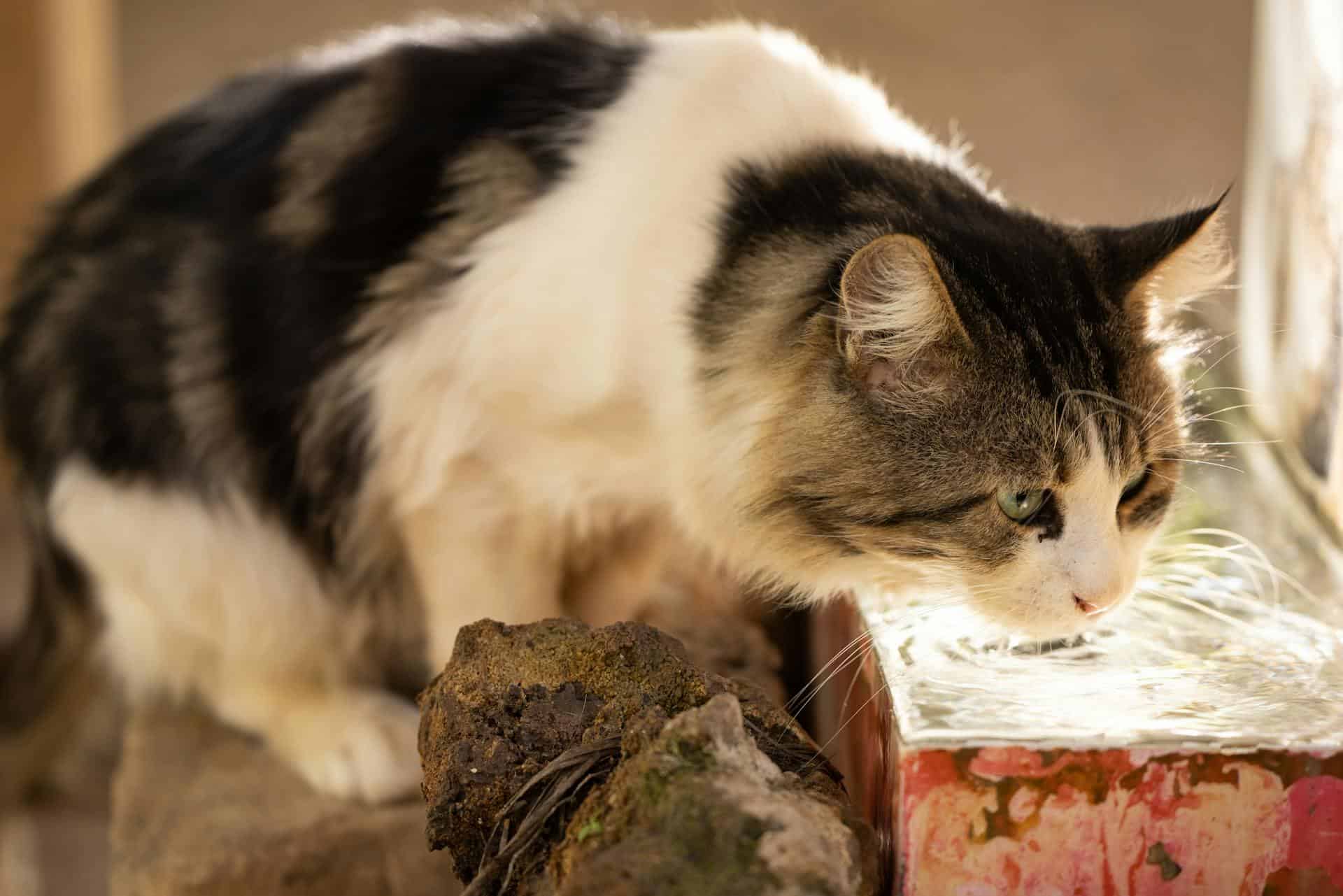
Cat Hydration: How Long Without Water?
Understanding how long a cat can survive without water is crucial for ensuring their health and well-being. Cats are historically desert animals, which means they are quite adept at conserving water. However, they still require regular access to clean and fresh water to avoid dehydration, which can have serious health implications.
Understanding Cat Hydration
Cats, by nature, are not big drinkers, which can often lead to concerns about their hydration levels. Understanding how to keep your cat properly hydrated is crucial for their health. Historically, cats have adapted to get most of their water from their prey, which is why they might not drink as much water as one might expect. Ensuring regular access to clean water is essential, and recognizing the signs of dehydration can help prevent health issues.
- Historical Adaptations of Cats to Water Scarcity: Cats have evolved to conserve water efficiently due to their desert-dwelling ancestors. This adaptation means they have a low thirst drive and can extract water from their food.
- The Importance of Regular Water Access: Always provide fresh water and consider using products like the Calming Herbal Essential Oil Blend to create a relaxing environment that encourages your cat to stay near water sources.
- Recognizing Signs of Dehydration: Look for dry gums, lethargy, or a decrease in skin elasticity. If you notice these signs, it's crucial to take steps to rehydrate your cat and consult your vet if necessary. Using products like the Calming Pet Spray can help keep your cat calm and more likely to drink.
Risks of Dehydration in Cats
Effects on Health and Behavior
Dehydration in cats can lead to severe health complications, including kidney failure, urinary tract problems, and even life-threatening conditions. Recognizing the early signs of dehydration, such as lethargy, dry mouth, and decreased appetite, is crucial for prompt intervention. Regular monitoring of your cat's water intake can prevent these issues and maintain their overall health.
Special Considerations for Sick Cats
Cats with chronic conditions like diabetes or kidney disease are at a higher risk of dehydration. For these pets, maintaining proper hydration is even more critical. Using products like the Calming Herbal Essential Oil Blend can help keep your cat relaxed, potentially reducing the stress that can exacerbate dehydration.
Related: How Can I Prepare My Cat for Winter Months?
When to Seek Veterinary Care
If you notice any persistent changes in your cat's hydration habits or overall health, it's essential to seek veterinary care. Early detection and treatment of dehydration can prevent more severe health issues. Additionally, incorporating the Calming Pet Spray can help soothe your cat, making veterinary visits less stressful for both of you.

Treatment and Prevention of Dehydration
How to Encourage Water Intake
To ensure your cat stays hydrated, consider placing multiple water bowls around your home and regularly changing the water to keep it fresh. Adding a water fountain can also entice your cat to drink more often due to the moving water. Incorporating wet food into their diet can significantly increase their water intake as well.
Treatment Options for Dehydrated Cats
For cats showing early signs of dehydration, providing oral rehydration solutions or administering subcutaneous fluids can be effective. It's crucial to monitor their progress and adjust the treatment as needed. For more severe cases, intravenous fluids may be required under veterinary supervision.
Preventive Measures to Ensure Hydration
Regularly check your cat's water bowls to ensure they are clean and filled. Consider using products like the Calming Herbal Essential Oil Blend and the Calming Pet Spray to create a relaxing environment that may help your cat stay calm and hydrated. Remember to prepare for pet emergencies with a well-stocked first aid kit, which should include items for hydration.
Daily Water Requirements for Cats
Understanding your cat's daily water requirements is crucial for maintaining their health and well-being. Cats should ideally drink approximately 4 ounces of water for every five pounds of their lean body weight daily.This means the average 10-pound cat should drink about one cup of water daily. Factors influencing these needs include their diet, activity level, and environmental temperature. For instance, cats on a dry food diet may require more water than those on a wet food diet. Here are some steps to ensure your cat stays hydrated:
- Always provide fresh, cool water.
- Monitor your cat's water intake, especially if they are very young, old, or have health issues.
- Consider using products like the Calming Herbal Essential Oil Blend or the Calming Pet Spray to create a relaxing environment that may encourage your cat to stay near their water source.
Remember, while your cat's exact water needs will depend on several factors, a good rule is to aim for 3.5–4.5 ounces of water per five pounds of body weight. Adjust as necessary based on their specific needs and any advice from your veterinarian.
Understanding your cat's daily water needs is crucial for their health and well-being. At Gou Gou Pets, we not only provide valuable insights on pet care but also offer a range of holistic pet care products. Ensure your feline friend stays hydrated and healthy with our expert tips and quality products. Visit our website to learn more and explore our holistic approach to pet wellness.
Hydration Essentials: Ensuring Your Cat's Well-being
Understanding the hydration needs of your cat is crucial for their health and well-being. Cats, being descendants of desert animals, have a unique ability to conserve water, but they still require regular access to fresh water to prevent dehydration. It is evident that cats cannot go more than 24 hours without water before dehydration begins to set in, and the situation becomes critical after 48-72 hours. Therefore, ensuring that your cat has continuous access to clean water is essential. If you notice any changes in your cat's drinking habits or other concerning symptoms, it is advisable to consult a veterinarian promptly. Remember, hydration is key to keeping your feline friend healthy and happy.
Share
